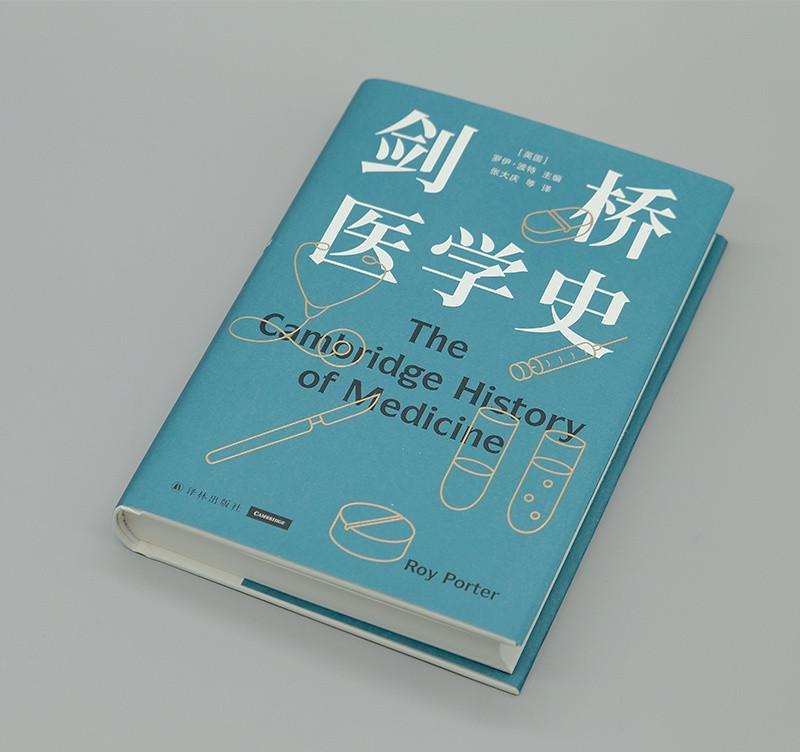Under the influence of the epidemic, the details of medicine, the history of medicine, and the purpose of medicine have attracted more and more attention. Is medicine only related to science and technology? Who controls and dominates the development of medicine? Is medicine determined by supply and demand, or is it shaped by market forces? Recently, Yilin Publishing House launched the "Cambridge Medical History", a blockbuster work in the history of medicine, which not only depicts the development process of human medicine for thousands of years, but also sharply understands the dilemmas and crises facing modern medicine.

The Cambridge History of Medicine was compiled by a group of authoritative scholars of medical history led by Roy Porter. Roy Porter is a famous British historian, a member of the British National Academy of Sciences, a pioneer in the history of medical society and medical culture, and is known as "the greatest medical historian of that generation". He has taught at the University of Cambridge, UCLA, Princeton University, and Stanford University. From 1993 he was Professor of Social History of Medicine at the Wellcome Institute for the History of Medicine at University College London until his retirement.
In addition to the history of medicine, Roy Porter was also accomplished in European history, the Enlightenment, geology, and more than 100 books during his lifetime. His vast disciplines led him beyond the traditional study of medical history and opened up new historical directions. Roy Porter gathered a group of authoritative scholars in the field of medical history, including academicians of the British Academy of Sciences and the Royal Society of Canada, to co-write the Cambridge History of Medicine.
As soon as it came out, it became a textbook classic.
The Cambridge History of Medicine boldly breaks through and breaks with tradition. It abandons the usual chronological narrative in favor of the thematic examples, carefully selecting issues that are essential to modern medicine as the theme of each chapter, such as what disease is, the relationship between hospitals and surgery, mental illness, and medicine and social government. As a result, the Cambridge History of Medicine has more room for in-depth exploration, to explore more questions, such as how the concept of disease relates to the socio-cultural context, and the interaction of gender culture and medicine.
Under the creation of Roy Porter, the history of medicine is no longer limited to the development of medical science and technology, but focuses on the relationship between medicine and politics, economy, culture, religion, etc.; it is no longer limited to the contributions of heroes in the medical field to improve human health, and also pays attention to the status of ordinary patients in medical activities. It is this innovation that makes the Cambridge History of Medicine a distinctive history of medicine, a classic book that is indispensable for understanding modern medicine.
On the other hand, the Cambridge History of Medicine is no longer a triumphant narrative, but a full affirmation of the benefits of medicine to mankind, while also pointing out the difficulties facing contemporary medicine.
The Cambridge History of Medicine tries to show us that understanding the history of medicine is more than just singing the praises. To understand the root causes of these problems facing contemporary medicine, it must be considered in terms of history. The book uses popular, easy-to-understand, and concise words to open the curtain on the history of medicine, and in the history full of success, it is not afraid to unveil the dark side, contradictions and challenges of medicine, face the complex relationship between medicine and war, ethics and power, and advocate humanitarian and humanistic spirit.
"Medicine is always about one thing: curing the sick." The Cambridge History of Medicine shows that medicine is constantly reinventing itself, overturning old dogmas, establishing new perspectives, and redefining goals. Where medicine will go tomorrow depends on our understanding and interpretation of history today. The Cambridge History of Medicine helps us to see the trajectory of medical evolution, understand the current state of medical development, and look forward to the future of medical path.
(Courtesy of publisher)